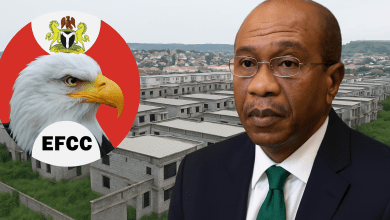
The Kaduna State Internal Revenue Service (KADIRS) has strongly disputed claims made by former Governor Nasir El-Rufai regarding the state’s internal revenue shortfall and alleged misappropriation of funds.
In a recent press briefing, Jerry Adams, the Executive Chairman of KADIRS, addressed what he termed as misleading statements made by the ex-governor, who suggested that the state’s revenue had plummeted from ₦7 billion to ₦2 billion and accused the government of transferring ₦100 million to an unidentified individual from the state’s internally generated revenue (IGR) account.
Contrary to El-Rufai’s claims, Adams provided clear figures showing a positive trend in the state’s revenue growth, revealing that Kaduna’s IGR surged from ₦62 billion in 2023 to ₦71 billion in 2024—marking a steady rise in both total and monthly revenue. He pointed out that El-Rufai’s assertion about the state’s revenue decline was based on limited or inaccurate information and explained that the actual revenue performance of KADIRS under the previous administration was much lower than claimed.
“Between 2019 and 2023, the highest annual revenue collection was ₦59 billion in 2022, which translates to an average monthly collection of ₦4.9 billion,” Adams stated. “It’s crucial to note that a substantial portion of this total revenue during El-Rufai’s tenure came from one-off sources, such as back-duty recoveries and the sale of government assets, which accounted for ₦45 billion. When these one-time inflows are excluded, the actual monthly revenue figures were far more modest.”
On the issue of the alleged ₦100 million transfer, Adams categorically denied the claim, emphasizing that all revenue collection processes in the state are automated and conducted through the PAYKADUNA platform. “The IGR account is a transit account, not an expenditure account. Therefore, withdrawals to individuals are not possible,” he clarified, reinforcing the transparency of the system.
Highlighting the progress under Governor Uba Sani, Adams pointed to the significant growth in IGR over the past year. “In 2023, Kaduna led northern Nigeria in IGR performance, with a total collection of ₦62.48 billion.
This figure rose to ₦71 billion in 2024, and in the first two months of 2025 alone, the state collected ₦14.16 billion without any one-time recoveries,” he said, adding that this was evidence of the state’s commitment to sustainable and organic growth in revenue generation.
Furthermore, Adams shared plans to centralize all IGR-related data into a unified database, a pioneering initiative for Kaduna State and Nigeria as a whole. This move aims to streamline tax administration, improve revenue forecasting, and facilitate data-driven decision-making for long-term financial sustainability.
“To build a solid and consistent revenue base, we must focus on organic growth,” Adams concluded, stressing that the Uba Sani administration is determined to not only increase IGR but also ensure its reliability and sustainability moving forward.





